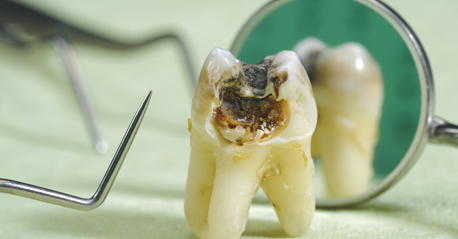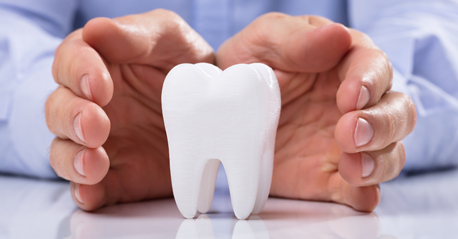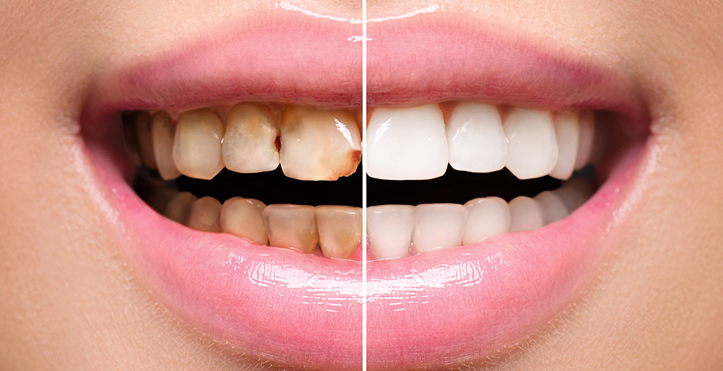Ever had a weird pain in one of your teeth and thought, “Oh! No. Does this mean I have a cavity?” Of course, only a dentist can tell you for sure, but there are plenty of signs (both visual and physical) that can help you identify whether you’re dealing with a cavity or possibly something else. But first, what even is a cavity?
“A cavity is really a hole in your tooth from tooth decay,” says Dr.Tricia Quartey, spokesperson for the American Dental Association. Sounds scary, but they’re relatively easy to treat with a dental restoration procedure such as fillings, crowns, etc. There are also plenty you can do to prevent cavities.
So What are the Symptoms of a Cavity?

The following are the five signs you should look out for to help you spot potential cavities yourself:
- Toothache, spontaneous pain or pain that occurs without any apparent cause
- Sensitivity in tooth
- Mild to sharp pain while eating or drinking something sweet, hot or cold
- Visible holes or pits in teeth
- Brown, black or white staining on any surface of a tooth
- Pain while biting down
If you feel or see any of these things, you should get to the dentist as soon as possible to figure out what is going on and get treatment.
You will have a toothache. Cavities are most often caused by acid. This acid is usually created when oral bacteria ferment carbohydrates from the food we eat. This fermentation creates acid.
Acid can break down your tooth’s enamel over time, causing overall weakness and worst of all, cavities. This deterioration process can be physically painful, so if you’ve got a toothache seemingly out of nowhere, it may be a cavity developing.
Your teeth are super sensitive. If you naturally have sensitive teeth, this may not be new to you. But if you develop sensitivity to hot, cold, or sweet foods that you didn’t have before, you may be feeling the effects of a cavity. Because cavities start on the outer part of your enamel and there are no nerve endings in the enamel, so it’s hard to tell early on. But if cavities are ignored long enough, you will definitely be able to tell if one has developed. As it starts progressing to the deeper layer of the tooth and it hits what’s called the Dentin, that’s where things start to get sensitive. Sensitivity equals cavity progression.
And it’s not just food that can lead to weak enamel and cavity development. There are other things like medication that you could be taking that could cause dry mouth, which creates a perfect environment for bacteria to run wild and that can also cause decay and deterioration.

Your teeth are very discoloured. Tooth decay leads to discoloration, so a change in shades, or one particularly dark area on a white tooth, is not a good sign.
You can sense black spots or holes in your teeth. Cavities start out white, then you’ll see black spots or holes in your teeth. If you’re seeing either of these things, it means your cavity is progressing, and you should schedule a visit to your dentist so they can deal with it before it gets any worse.
You can feel pain while eating. The holes that form from cavities can even go all the way down to the soft tissue in the centre of your tooth. At this point, a cavity will hurt a lot, especially when it gets pushed down on while eating, according to the American Dental Association.

